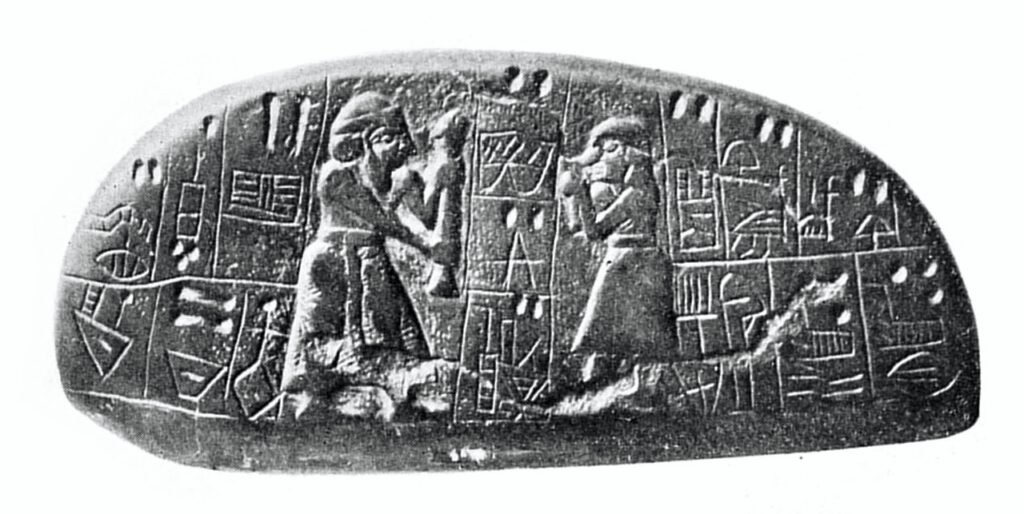Sumerian Culture: Ancient Traditions & Rich Heritage
The Sumerian civilization, which dates back to around 4,500 BCE, is considered one of the earliest and most influential civilizations in human history. The Sumerians, who lived in the region known as Mesopotamia, now modern-day Iraq, left behind a lasting legacy that continues to captivate historians, archaeologists, and scholars alike. This article delves into the various aspects of Sumerian culture, including their origins, social structure, religion, inventions, art, daily life, trade, education, and lasting influence.

Origins and Civilization of Sumer
The Sumerians emerged as a distinct group around 4,500 BCE in the southern part of Mesopotamia, nestled between the Tigris and Euphrates rivers. They developed a sophisticated urban civilization, characterized by the establishment of city-states. Each city-state had its own ruler, who governed the surrounding rural areas. These city-states, such as Ur, Uruk, and Lagash, flourished with agriculture, trade, and skilled craftsmanship.
Social Structure and Hierarchy
Sumerian society was organized hierarchically, with the ruling class consisting of kings, high priests, and nobles. They were followed by the middle class, including merchants, traders, and skilled craftsmen. At the bottom of the social ladder were the common laborers and slaves, who were tasked with manual labor and menial tasks. The social structure was rigid, with limited opportunities for upward mobility.

Religion and Mythology in Sumer
Religion played a central role in Sumerian culture. The Sumerians practiced polytheism and worshipped a pantheon of gods and goddesses. They believed in the divine control over natural phenomena and sought to appease their deities through offerings and rituals. The Sumerian mythology, recorded in epic poems such as the Epic of Gilgamesh, provided insights into their beliefs about creation, the afterlife, and the relationships between gods and humans.
Sumerian Inventions and Achievements
The Sumerians were remarkably innovative and made significant contributions to human civilization. They are credited with inventing writing, using cuneiform script, which was one of the earliest known writing systems. They also developed a sophisticated system of mathematics, including the concept of place value and a base-60 numeral system that influenced our modern way of measuring time. Furthermore, they constructed advanced irrigation systems to harness the waters of the Tigris and Euphrates for agriculture.
Art and Architecture of Ancient Sumer
Sumerian art and architecture were highly developed and expressed their religious and cultural beliefs. They created intricate sculptures, often depicting deities and rulers, using materials such as stone, metal, and clay. The Sumerians also built magnificent temples called ziggurats, which were towering structures with multiple stepped levels, serving as spiritual centers and symbols of their cities’ prestige.
Daily Life and Customs in Sumer
The daily life of Sumerians revolved around agriculture, with farming being the primary occupation. They cultivated crops such as barley, wheat, and dates using advanced irrigation techniques. Sumerian society was patriarchal, with men typically holding positions of power and authority. The average Sumerian family lived in mud-brick houses, and education was primarily reserved for the elite. They enjoyed various forms of entertainment, including music, dance, and board games.
Sumerian Trade and Economy
Trade was an essential component of the Sumerian economy. The Sumerians established extensive trade networks, importing valuable resources such as timber, metals, and precious stones. They also exported goods like textiles, grains, and pottery. The city of Ur, for instance, became a bustling trade hub, connecting Mesopotamia with distant lands. To facilitate commerce, the Sumerians developed an early system of weights and measures, which further enhanced their economic activities.
Education and Writing System
The Sumerians were pioneers in education and developed the first formal schooling system. Education was primarily intended for the elite and focused on subjects like reading, writing, mathematics, and religious rituals. The Sumerians’ writing system, known as cuneiform, involved impressing wedge-shaped marks onto clay tablets. This system allowed for the preservation of records, literature, and legal documents, contributing to the development of written history.
Legacy and Influence of Sumerian Culture
The legacy of Sumerian culture is far-reaching and profound. Their innovations in agriculture, writing, and mathematics laid the foundation for future civilizations. The concept of city-states, temple complexes, and social hierarchy influenced subsequent societies. Furthermore, the Epic of Gilgamesh, one of the earliest recorded works of literature, has had a lasting impact on storytelling and mythological traditions across cultures.
Rediscovery and Preservation Efforts
The rediscovery of Sumerian culture began in the 19th century, with archaeologists unearthing ancient cities and deciphering cuneiform tablets. These discoveries shed light on the rich history and cultural achievements of the Sumerians. Preservation efforts, both within Iraq and by international organizations, continue to protect and conserve Sumerian artifacts and archaeological sites, ensuring future generations can learn from and appreciate this ancient civilization.
Understanding Sumerian Culture Today
As our understanding of Sumerian culture grows, its significance becomes even more apparent. The study of Sumerian civilization enables us to trace the roots of human civilization and appreciate the remarkable advancements made by our ancestors. By exploring the diverse aspects of Sumerian culture, we can gain valuable insights into the origins of various social, religious, and technological practices that persist in modern society.
The Sumerian culture remains an enduring testament to the ingenuity and creativity of early civilizations. Through their contributions in various fields, including writing, mathematics, and architecture, the Sumerians shaped the course of human history. Today, their heritage serves as a reminder of the importance of preserving and understanding our shared cultural past. By delving into the wonders of Sumerian culture, we can appreciate the extraordinary achievements of this ancient civilization and the lasting impact they have had on our world.


